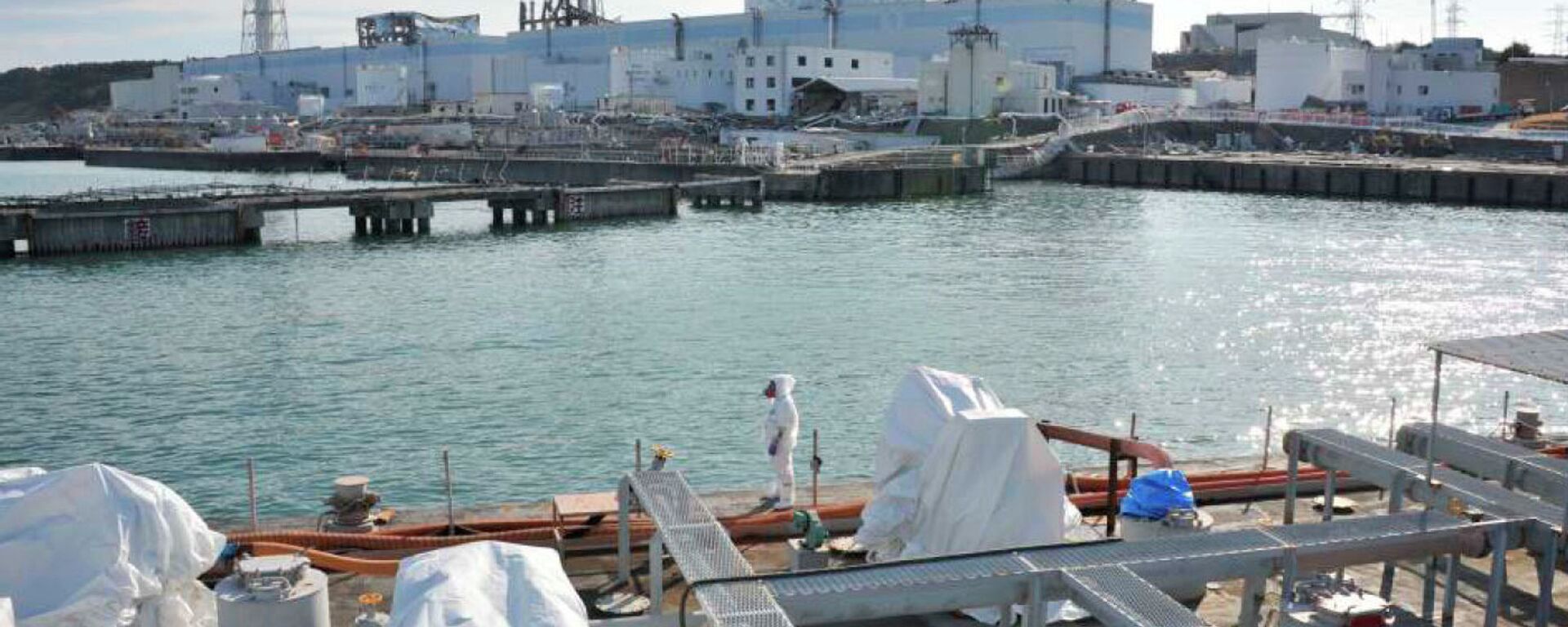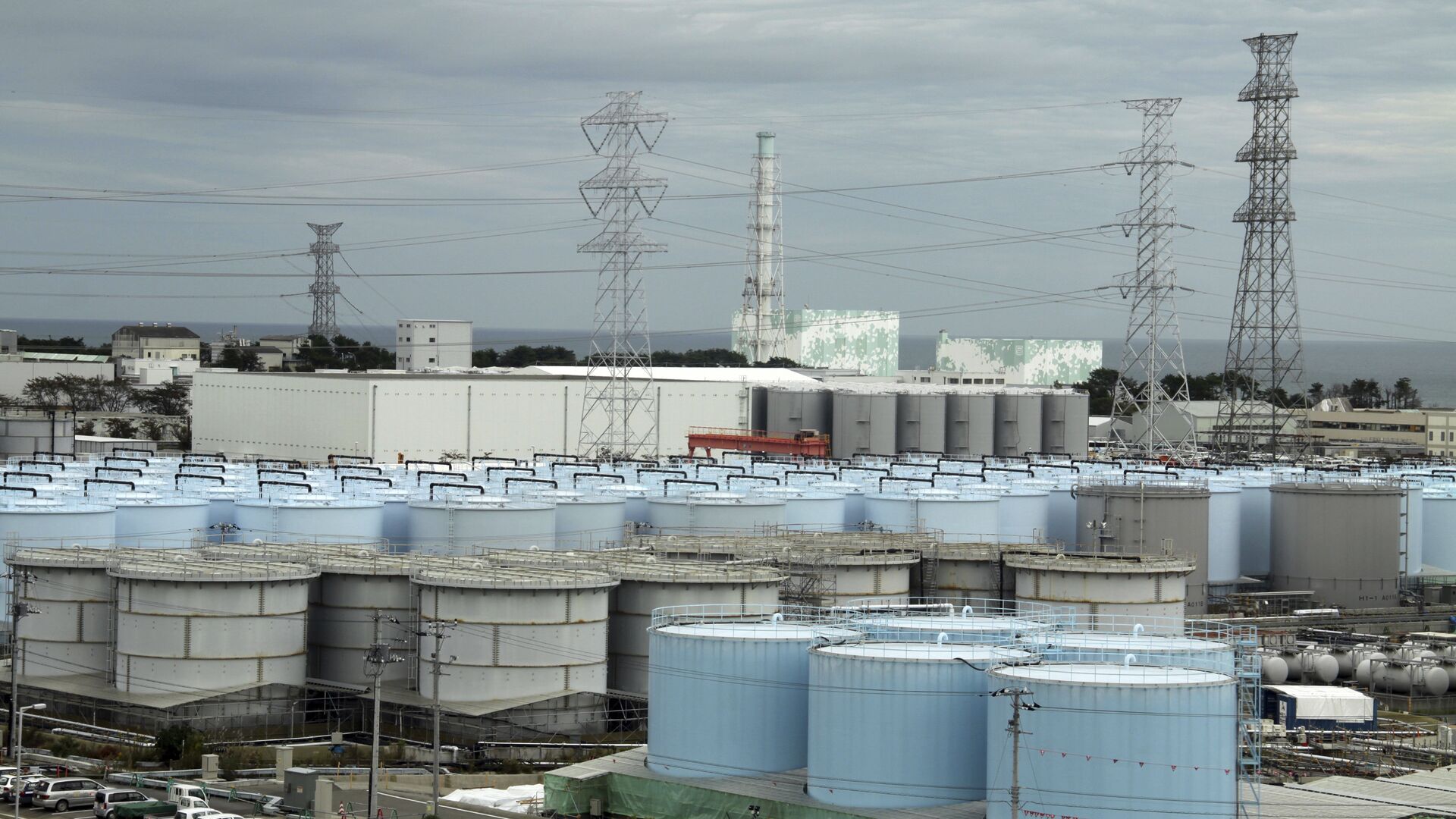https://sputnikglobe.com/20230908/first-seawater-samples-near-fukushima-npp-show-tritium-levels-within-limit---iaea-1113218725.html
First Seawater Samples Near Fukushima NPP Show Tritium Levels Within Limit - IAEA
First Seawater Samples Near Fukushima NPP Show Tritium Levels Within Limit - IAEA
Sputnik International
MOSCOW (Sputnik) - First seawater samples taken near Japan's Fukushima nuclear power plant (NPP) after the start of the discharge of treated water show tritium... 08.09.2023, Sputnik International
2023-09-08T23:12+0000
2023-09-08T23:12+0000
2023-09-08T23:10+0000
asia
fukushima
japan
international atomic energy agency (iaea)
tokyo electric power company (tepco)
wastewater
https://cdn1.img.sputnikglobe.com/img/106091/77/1060917747_0:156:3001:1844_1920x0_80_0_0_d0ef4c01be8914cb18618a35ccfbe04f.jpg
"The International Atomic Energy Agency’s first independent sampling and analysis of seawater near the Fukushima Daiichi Nuclear Power Station since discharges of ALPS treated water started on 24 August confirms that the tritium levels are below Japan's operational limit," the agency said in a statement. IAEA staff at the site took samples of seawater from several locations within 3 kilometers (1.8 miles) from the NPP, at sea as well as from the coast, the agency said. The analysis of samples continues, it said. The findings come on the heels of a lawsuit filed against the Japanese government and the Tokyo Electric Power Company Holdings, alleging the wastewater release both undermines citizens' right to live safely and endangers the livelihood of local fisheries.Plaintiffs also outlined in the suit a 2015 document in which the Japanese government vowed to not release the since-diluted waters without first obtaining the go-ahead from all involved parties. The Japan Fisheries Association did not support the release decision.On August 24, Japan started dumping treated water from the Fukushima nuclear plant into the Pacific Ocean, having diluted it with sea water in advance. Tokyo claimed to have purified the water of all radionuclides except tritium, which was still within the permitted limit.
https://sputnikglobe.com/20230825/beijing-calls-japans-release-of-treated-water-from-fukushima-npp-irresponsible-behavior-1112880771.html
fukushima
japan
Sputnik International
feedback@sputniknews.com
+74956456601
MIA „Rossiya Segodnya“
2023
Sputnik International
feedback@sputniknews.com
+74956456601
MIA „Rossiya Segodnya“
News
en_EN
Sputnik International
feedback@sputniknews.com
+74956456601
MIA „Rossiya Segodnya“
Sputnik International
feedback@sputniknews.com
+74956456601
MIA „Rossiya Segodnya“
fukushima, japan, international atomic energy agency (iaea), tokyo electric power company (tepco), wastewater
fukushima, japan, international atomic energy agency (iaea), tokyo electric power company (tepco), wastewater
First Seawater Samples Near Fukushima NPP Show Tritium Levels Within Limit - IAEA
MOSCOW (Sputnik) - First seawater samples taken near Japan's Fukushima nuclear power plant (NPP) after the start of the discharge of treated water show tritium levels are within the established limit, the International Atomic Energy Agency (IAEA) said on Friday.
"The International Atomic Energy Agency’s first independent sampling and analysis of seawater near the Fukushima Daiichi Nuclear Power Station since discharges of ALPS treated water started on 24 August confirms that the tritium levels are below Japan's operational limit," the agency said in a statement.
IAEA staff at the site took samples of seawater from several locations within 3 kilometers (1.8 miles) from the NPP, at sea as well as from the coast, the agency said. The analysis of samples continues, it said.
The findings come on the heels of a lawsuit filed against the Japanese government and the Tokyo Electric Power Company Holdings, alleging the wastewater release both undermines citizens' right to live safely and endangers the livelihood of local fisheries.
Plaintiffs also outlined in the suit a 2015 document in which the Japanese government vowed to not release the since-diluted waters without first obtaining the go-ahead from all involved parties. The Japan Fisheries Association did not support the release decision.

25 August 2023, 10:47 GMT
On August 24, Japan started dumping treated water from the Fukushima nuclear plant into the Pacific Ocean, having
diluted it with sea water in advance. Tokyo claimed to have purified the water of all radionuclides except tritium, which was still within the permitted limit.
The water release was met with strong opposition from China and other countries in the region. Beijing called the discharged water "contaminated" and responded by suspending Japanese seafood imports.
Tokyo, for its part, vowed to use tools within the World Trade Organization to respond to the ban. The IAEA has said the treated wastewater would have a negligible radiological impact on people and the environment.



